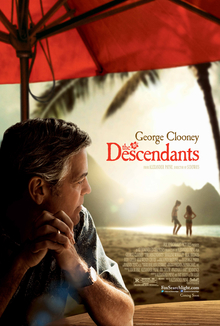The Descendants
Reviewed Jul 7, 2020 on The Litt Review.

I read this book quickly, in a couple of days. Because I am so familiar with the movie, reading the book was like rehearsing the movie in my head, with some of the characters saying different things, and lots of scenes added back in like a director’s cut. The internal monologue was also constant in the book, and not only in the long cut scenes of the film.
The book is different, in a few ways. Spoiler alert. Sid has a developed backstory; his father had died. I’d forgotten that. Matt has a few more friends, and the ones he does have are less developed than in the movie, possibly because they’re side characters. There’s more interaction with the doctor. Scottie’s plot is also more developed; she’s more sexualized. Overall, the book is just edgier. Alex did heroin or cocaine, before being sent to boarding school. Scottie hurts herself by slamming her hand on an urchin, asking a boy to pee on it (it’s vague whether this happened or not), and then later wrapping herself in man-of-wars. Sid and Alex spend more time making out, and they have some sexual interaction off camera. All in all, it’s more disturbing.
I think the movie does a better job of showing the story. I found it hard to empathize with Matt’s internal dialogue. He doesn’t seem like the nicest guy; he’s grossly negligent before the accident, and his focus on work doesn’t come through in the book. He just seems callous. But, in the movie, there are some added quotes: “Our family is more like islands,” or “you always made things harder.” I liked those touches, and I missed them in the book. They made him more relatable.
I wondered why I was reading the book at all. It’s possible I just like seeing flowers and Hawai’i, and not just reading about it. I can’t hear the ukuleles in the bar when I’m reading the book, and my imagination isn’t that good. It’s also possible that my attempt to convey the movie characters onto the book ones just seemed off-kilter.
The book does go into the reason for the name of the book - the descendants.
But I need to think about what’s best for my family instead of how others perceive my family, something I’ve been guilty of all my life, trying to prove I’m great and not just a descendant of somebody great.
That is established fairly early on. However, the entire subplot about being a descendant takes second chair to the greater suburban drama of Matt being cheated on, and his wife dying. That’s more important. I’m not sure that being a Hawai’ian has much to do with the main plot, and the link seemed tenuous at best. There’re some good insights on this vein:
Our offspring have all decided to give up. They’ll never be senators or owners of a football team; they’ll never be the West Coast president of NBC, the founder of Weight Watchers, the inventor of shopping carts, a prisoner of war, the No. 1 supplier of the world’s macadamia nuts. No, they’ll do coke and smoke pot and take creative writing classes and laugh at us. Perhaps they’ll document our drive, but they’ll never endorse it. I look at both of these girls and see it int heir eyes, their pity for us and yet their determination to beat us in their own way, a way they haven’t found yet.I never found a way to beat my rulers.
This covers his relationship with his daughters. But I still found it somewhat lacking. I feel that the book gave me more of a perspective on the movie, and less one on the characters.
Overall, it was a good read, and I’m glad I’ve read it. The book is still wrapped up in my desire to visit Hawai’i at some point, too, and I’m aware of that. Just being there, literally, was enjoyable. But next time I want to go back to this story, I’ll watch the film.
Do you want to get book reviews and notes from books I read in your inbox? Sign up! I'll include a summary, my favorite quotes from the book, and any vocabulary I found interesting or didn't know already.